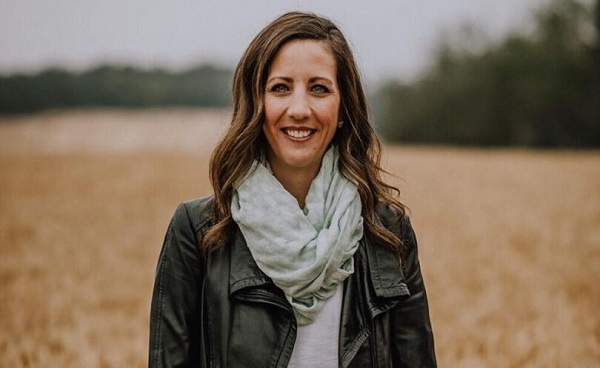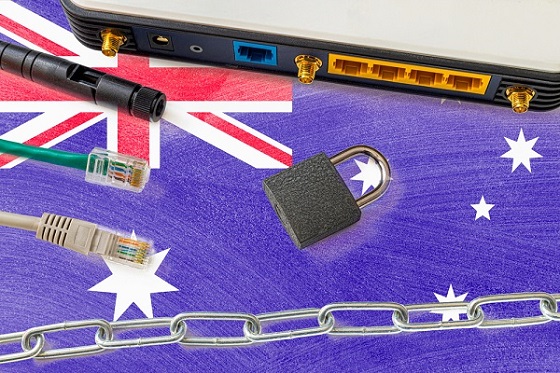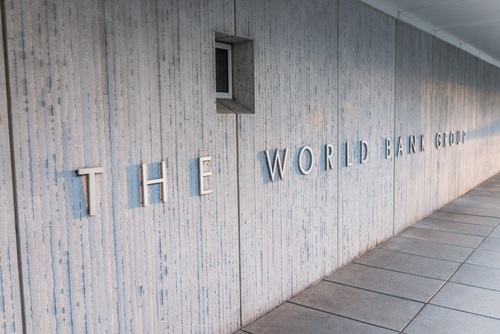Education
Too many bad ideas imposed on classroom teachers

From the Fraser Institute
The Waterloo Region District School Board recently announced it would remove garbage bins from classrooms, before suddenly reversing itself.
Strange as it sounds, the school board planned to replace classroom waste bins with larger bins in common areas outside of classrooms, ostensibly to reduce the amount of waste produced by schools. Apparently, the facilities superintendent and senior facilities manager (the people behind this idea) think garbage magically appears when garbage bins are in classrooms and disappears once you get rid of these bins.
Of course, reality is quite different. Students still must dispose of dirty Kleenex tissues, empty pens and used candy wrappers. The aborted plan gave students a ready-made excuse for extra hallway trips. To prevent this from happening, teachers would have to provide makeshift garbage bins of their own.
This is a prime example of administrators trying to impose impractical directives on teachers for the sake of virtue signalling. No doubt Waterloo school board officials wanted to be recognized as environmental leaders. Getting rid of garbage bins in classrooms is an easy and effortless way to look like you’re doing something good for the environment.
Indeed, teachers typically bear the brunt of bad ideas imposed on them from above. As another example, British Columbia K-9 teachers must now issue report cards with confusing descriptors such as “emerging” and “extending” rather than more easily understood letter grades such as A, B and C. A recent survey revealed that most parents find the new B.C. report cards hard to understand. While most had no trouble interpreting letter grades such as A, less than one-third could correctly identify what “emerging” and “extending” mean about a student’s progress.
While the B.C. Ministry of Education claims these new report cards are built on the expertise of classroom teachers, its own surveys found that 77 per cent of teachers were unhappy with the grading overhaul. Of course, their feedback was ignored by education bureaucrats, which means teachers must implement something most disagree with, and then bear the brunt of parental frustration.
And one can never forget the nonsensical “no-zero” policies imposed on teachers in every province, which prohibit teachers from giving a mark of zero when students fail to hand in assignments or docking marks for late assignments. The reasoning behind no-zero policies is that zeroes have too negative an impact on student grades.
Fortunately, no-zero policies have become less popular in Canadian schools, particularly after Edmonton physics teacher Lynden Dorval was fired for refusing to comply with his principal’s no-zeroes edict. Not only did the public overwhelmingly support Dorval at the time, but the Alberta Court of Appeal upheld an arbitrator’s ruling that Dorval’s firing was unjust. In the end, taxpayers were on the hook for paying Dorval two years of salary, along with topping up his pension. But this doesn’t mean no-zero policies have disappeared entirely. Plenty of assessment gurus hired by school boards still push them on gullible administrators and unsuspecting teachers.
Finally, there are the never-ending diversity, equity and inclusion (DEI) training sessions—possibly the worst fads ever imposed on Canadian teachers. In an obvious desire to justify their jobs, DEI consultants provide many hours of professional development to hapless teachers who have no choice but to attend.
When teachers push back, as Toronto principal Richard Bilkszto did during a DEI session a couple years ago, they’re subjected to harassment and derision. In this case, the social impact on Bilkszto was so negative he eventually and tragically took his own life.
The Bilkszto case had a chilling effect—teachers should go along with whatever they’re told to do by their employer, even when a directive doesn’t make sense. This is not healthy for any profession, and it certainly doesn’t benefit students.
Classroom teachers have far too many bad ideas imposed on them. Instead of making teachers implement useless fads, we should just let them teach. That is, after all, why they became teachers in the first place.
Author:
Red Deer
Judge upholds sanctions against Red Deer Catholic school trustee who opposed LGBT agenda

From LifeSiteNews
Monique LaGrange was ousted last December from the Red Deer Catholic Regional Schools’ board for comparing the LGBT agenda targeting children to brainwashing.
A Canadian judge ruled that a school board was justified to place harsh sanctions on a Catholic school trustee forced out of her position because she opposed extreme gender ideology and refused to undergo LGBT “sensitivity” training.
Justice Cheryl Arcand-Kootenay of the Court of King’s Bench of Alberta ruled Thursday that the Red Deer Catholic Regional Schools (RDCRS) Board’s sanctions placed against former trustee Monique LaGrange will stand.
LaGrange had vowed to fight the school board in court, and it remains to be seen if she can take any further actions after the decision by Judge Arcand-Kootenay.
The judge ruled that the RDCRS’s policies in place for all trustees, which the board contended were breached, were “logical, thorough, and grounded in the facts that were before the Board at the time of their deliberations.”
As reported by LifeSiteNews, the RDCRS board voted 3-1 last December to disqualify LaGrange after she compared the LGBT agenda targeting kids with that of “brainwashing” Nazi propaganda. As a result of being voted out, LaGrange later resigned from her position.
The former school board trustee initially came under fire in September 2023 when she posted an image showing kids in Nazi Germany waving swastika flags during a parade to social media, with the bottom of the post showing an image of kids waving LGBT “Pride” flags along with the text: “Brainwashing is brainwashing.”
After her post went viral, calls for her to step down grew from leftist Alberta politicians and others. This culminated in her removal as director of the Alberta Catholic School Trustees’ Association (ACSTA).
In September 2023, the RDCRS passed a motion to mandate that LaGrange undergo “LGBTQ+” and holocaust “sensitivity” training for her social media post.
LaGrange, however, refused to apologize for the meme or undergo “sensitivity” training.
She had argued that the RDCRS had no right to issue sanctions against her because they were not based on the Education Act or code of conduct. Arcand-Kootenay did not agree with her, saying code of conduct violations allow for multiple sanctions to be placed against those who violate them.
Education
‘Grade inflation’ gives students false sense of their academic abilities

From the Fraser Institute
The average entrance grade at the University of British Columbia is now 87 per cent, up from 70 per cent only 20 years ago. While this is partly because the supply of available university spots has not kept pace with growing demand, it’s also likely that some B.C. high schools are inflating their students’ grades.
Suppose you’re scheduled for major heart surgery. Shortly before your surgery begins, you check into your surgeon’s background and are pleased to discover your surgeon had a 100 per cent average throughout medical school. But then you learn that every student at the same medical school received 100 per cent in their courses, too. Now you probably don’t feel quite as confident in your surgeon.
This is the ugly reality of “grade inflation” where the achievements of everyone, including the most outstanding students, are thrown into question. Fortunately, grade inflation is (currently) rare in medical schools. But in high schools, it’s a growing problem.
In fact, grade inflation is so prevalent in Ontario high schools that the University of Waterloo’s undergraduate engineering program uses an adjustment factor when evaluating student applications—for example, Waterloo might consider a 95 per cent average from one school the equivalent of an 85 per cent average from another school.
Grade inflation is a problem in other provinces as well. The average entrance grade at the University of British Columbia is now 87 per cent, up from 70 per cent only 20 years ago. While this is partly because the supply of available university spots has not kept pace with growing demand, it’s also likely that some B.C. high schools are inflating their students’ grades.
Sadly, grade inflation is so rampant these days that some school administrators don’t even try to hide it. For example, earlier this year all students at St. Maximilian Kolbe Catholic High School in Aurora, Ontario, received perfect marks on their midterm exams in two biology courses and one business course—not because these students had mastered these subjects but because the York Catholic District School Board had been unable to find a permanent teacher at this school.
The fact that a school board would use grade inflation to compensate for inadequate instruction in high school tells us everything we need to know about the abysmal academic standards in many schools across Canada.
And make no mistake, student academic performance is declining. According to results from the Programme for International Assessment (PISA), math scores across Canada declined from 532 points in 2003 to 497 points in 2022 (PISA equates 20 points to one grade level). In other words, Canadian students are nearly two years behind on their math skills then they were 20 years ago. While their high school marks are going up, their actual performance is going down.
And that’s the rub—far from correcting a problem, grade inflation makes the problem much worse. Students with inflated grades get a false sense of their academic abilities—then experience a rude shock when they discover they aren’t prepared for post-secondary education. (According to research by economists Ross Finnie and Felice Martinello, students with the highest high school averages usually experience the largest drop in grades in university). Consequently, many end up dropping out.
Grade inflation even hurts students who go on to be academically successful because they suffer the indignity of having their legitimate achievements thrown into doubt by the inflated grades of other students. If we want marks to have meaning, we must end the practise of grade inflation. We do our students no favours when we give them marks they don’t really deserve.
Just as our confidence in a surgeon would go down if we found out that every student from the same medical school had a 100 per cent average, so we should also question the value of diplomas from high schools where grade inflation is rampant.
Author:
-

 Brownstone Institute1 day ago
Brownstone Institute1 day agoThe Most Devastating Report So Far
-

 Business1 day ago
Business1 day agoCarbon tax bureaucracy costs taxpayers $800 million
-

 ESG1 day ago
ESG1 day agoCan’t afford Rent? Groceries for your kids? Trudeau says suck it up and pay the tax!
-

 Daily Caller1 day ago
Daily Caller1 day agoLos Angeles Passes ‘Sanctuary City’ Ordinance In Wake Of Trump’s Deportation Plan
-

 John Stossel1 day ago
John Stossel1 day agoGreen Energy Needs Minerals, Yet America Blocks New Mines
-

 COVID-192 days ago
COVID-192 days agoDr. McCullough praises RFK Jr., urges him to pull COVID shots from the market
-

 MAiD2 days ago
MAiD2 days agoOver 40% of people euthanized in Ontario lived in poorest parts of the province: government data
-

 Alberta1 day ago
Alberta1 day agoProvince considering new Red Deer River reservoir east of Red Deer








